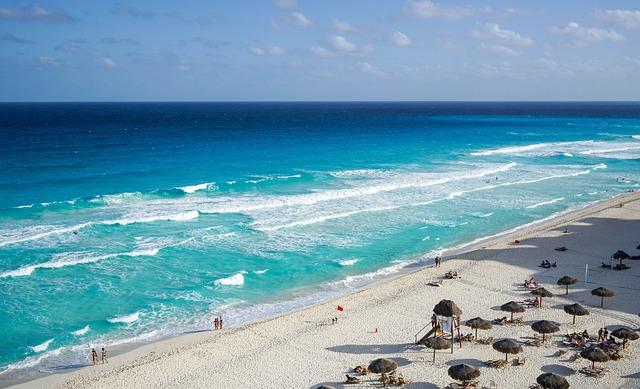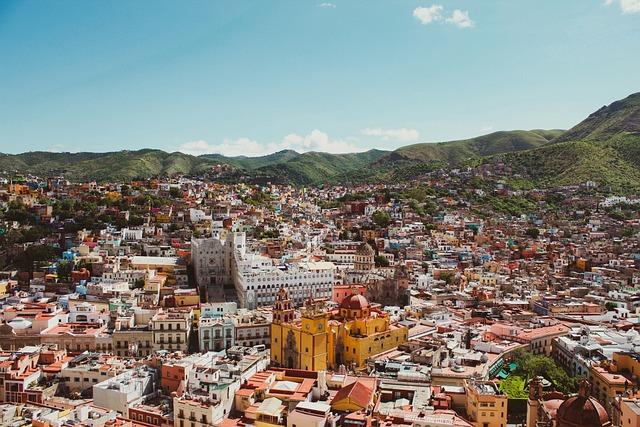In the sun-drenched landscapes of Mexico, where azure waves kiss golden shores and ancient ruins whisper tales of bygone eras, a thriving tourism industry paints a picture of prosperity and allure. Yet, beneath the vibrant tapestry of cultural festivals and bustling markets lies a complex narrative that often goes unnoticed. As travelers flock to experience the warmth of Mexican hospitality, questions arise about the intricate dynamics between the booming tourism sector and the local workforce that sustains it. This article delves into the heart of Mexico’s tourism industry, exploring whether the glittering façade of growth conceals the exploitation of those who form its backbone. Through a balanced lens, we examine the realities faced by local workers, navigating the intersection of economic opportunity and ethical responsibility in a land where hospitality is both a tradition and a livelihood.
Impact of Tourism on Mexicos Workforce
The tourism sector in Mexico serves as a double-edged sword for the local workforce. On one hand, it is a significant contributor to the national economy, creating numerous job opportunities in various fields such as hospitality, transportation, and entertainment. Tourism-related jobs are often more accessible to individuals without advanced educational backgrounds, providing a vital source of income for many families. However, the nature of these jobs often leads to a cycle of dependency and vulnerability.
- Low Wages: Many workers earn wages that barely meet the cost of living, perpetuating economic instability.
- Seasonal Employment: The reliance on seasonal tourism can result in inconsistent work, leaving employees without income during off-peak times.
- Limited Career Advancement: Positions in the tourism industry often lack clear pathways for professional growth, trapping workers in low-level roles.
While tourism undeniably injects vitality into the Mexican economy, it raises critical questions about the sustainability and fairness of the opportunities it provides. The challenge lies in balancing economic benefits with the need to protect and empower the workforce that supports this thriving industry.

Balancing Economic Growth with Fair Labor Practices
In recent years, Mexico’s tourism industry has witnessed a remarkable boom, drawing millions of visitors to its picturesque beaches, vibrant cities, and rich cultural heritage. While this surge in tourism has undoubtedly bolstered the national economy, questions linger about whether this growth is being achieved at the expense of local workers. Fair labor practices are a cornerstone of sustainable development, yet many in the tourism sector face low wages, inadequate benefits, and long working hours. This raises a critical question: Is the pursuit of economic prosperity overshadowing the rights and welfare of those who are the backbone of this thriving industry?
- Inadequate Compensation: Reports suggest that many employees in hotels and restaurants receive wages below the living standard.
- Lack of Benefits: Health insurance and paid leave are often absent, leaving workers vulnerable.
- Excessive Working Hours: The demand for round-the-clock service often leads to extended shifts without overtime pay.
To ensure that the tourism sector grows in a manner that is equitable and just, stakeholders must prioritize the implementation of labor laws that protect workers’ rights. By fostering an environment where economic growth goes hand in hand with fair labor practices, Mexico can set a precedent for sustainable tourism that benefits all.

Exploring Wage Disparities in Tourist Hotspots
In the sun-drenched locales of Mexico’s most popular tourist destinations, a striking contrast often emerges between the luxurious experiences offered to visitors and the economic realities faced by the local workforce. While tourism contributes significantly to the nation’s GDP, there are underlying concerns about how the profits are distributed. Local workers often find themselves at the heart of this disparity, grappling with wages that do not reflect the cost of living in these high-demand areas.
- Many workers are employed in seasonal jobs, which lack stability and benefits.
- Wage gaps are particularly evident when comparing earnings in tourist-centric regions to those in less popular areas.
- Some businesses prioritize profit margins over fair compensation, further widening the economic divide.
The dichotomy between opulence and economic struggle in these regions raises questions about the ethical responsibilities of the tourism industry. As the demand for authentic cultural experiences grows, there is an opportunity for stakeholders to ensure that economic benefits are shared more equitably, supporting both the sustainability of local communities and the overall health of the tourism sector.

Pathways to Sustainable and Ethical Tourism in Mexico
- Community-Based Tourism Initiatives: Mexico is rich in indigenous culture and breathtaking natural landscapes, making it a prime location for community-based tourism. This approach empowers local communities by providing them with a platform to showcase their traditions and lifestyles, offering tourists a more authentic experience. By participating in these initiatives, travelers can contribute directly to local economies and ensure that the financial benefits of tourism are distributed more equitably.
- Eco-Friendly Accommodations: The rise of eco-friendly accommodations in Mexico is a promising pathway to sustainable tourism. Many hotels and resorts are adopting green practices such as using solar energy, implementing water conservation methods, and sourcing local and organic food. This not only minimizes the environmental footprint of tourism but also supports local farmers and suppliers, fostering a more sustainable supply chain.
Investing in ethical and sustainable tourism practices can lead to a more balanced relationship between tourists and local communities. By prioritizing fair wages and working conditions for local workers, the tourism industry in Mexico can become a force for good, ensuring that all stakeholders benefit from the country’s natural and cultural wealth.
Future Outlook
As the sun sets on the vibrant landscapes of Mexico, casting a golden hue over its bustling tourist hubs and serene coastal retreats, the questions surrounding the treatment of its local workforce remain illuminated. The interplay between economic opportunity and ethical responsibility continues to shape the narrative of Mexico’s tourism industry. While it offers a window to the world, showcasing the country’s rich cultural tapestry and natural beauty, it also challenges us to look deeper into the lives of those who sustain it.
As travelers and industry stakeholders alike navigate this complex terrain, the call for sustainable and equitable practices grows ever more resonant. Only through a balanced approach, one that honors both the land and its people, can the true spirit of Mexico shine brightly for generations to come. The journey towards harmony between prosperity and fairness is one that requires not only reflection but also action. And so, as we close this chapter, the dialogue remains open, inviting all who are part of this vibrant mosaic to contribute to a future where tourism enriches the lives of all it touches.


































